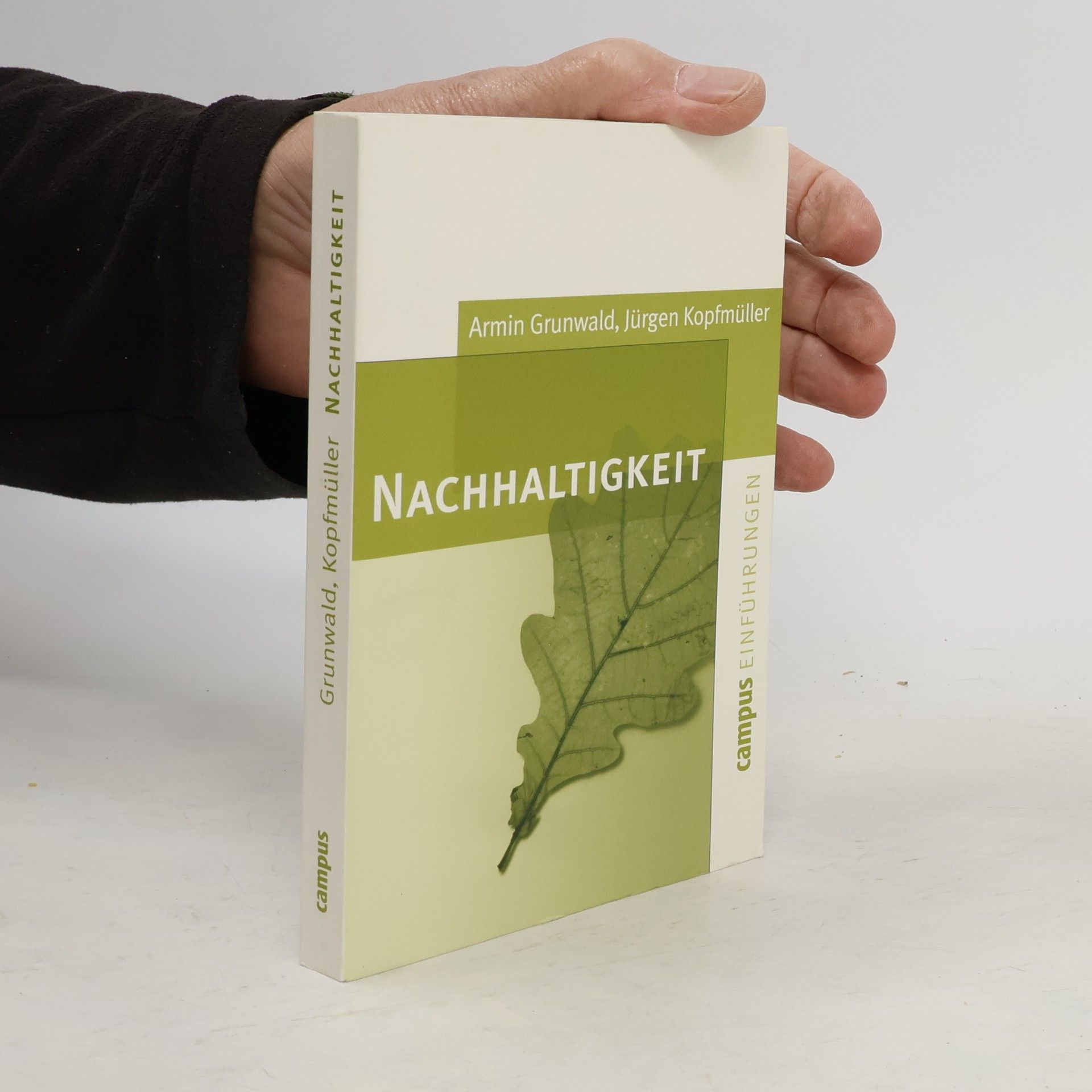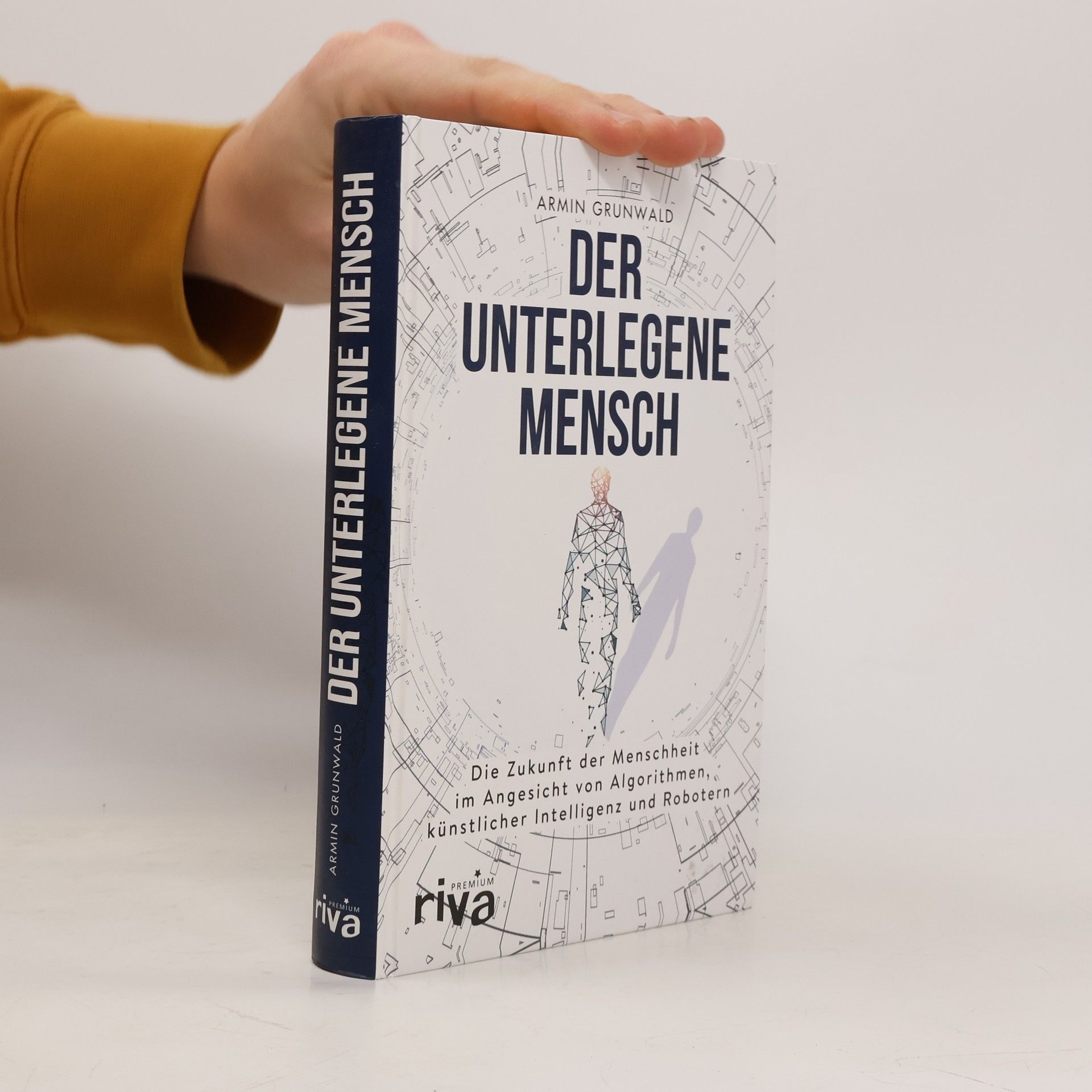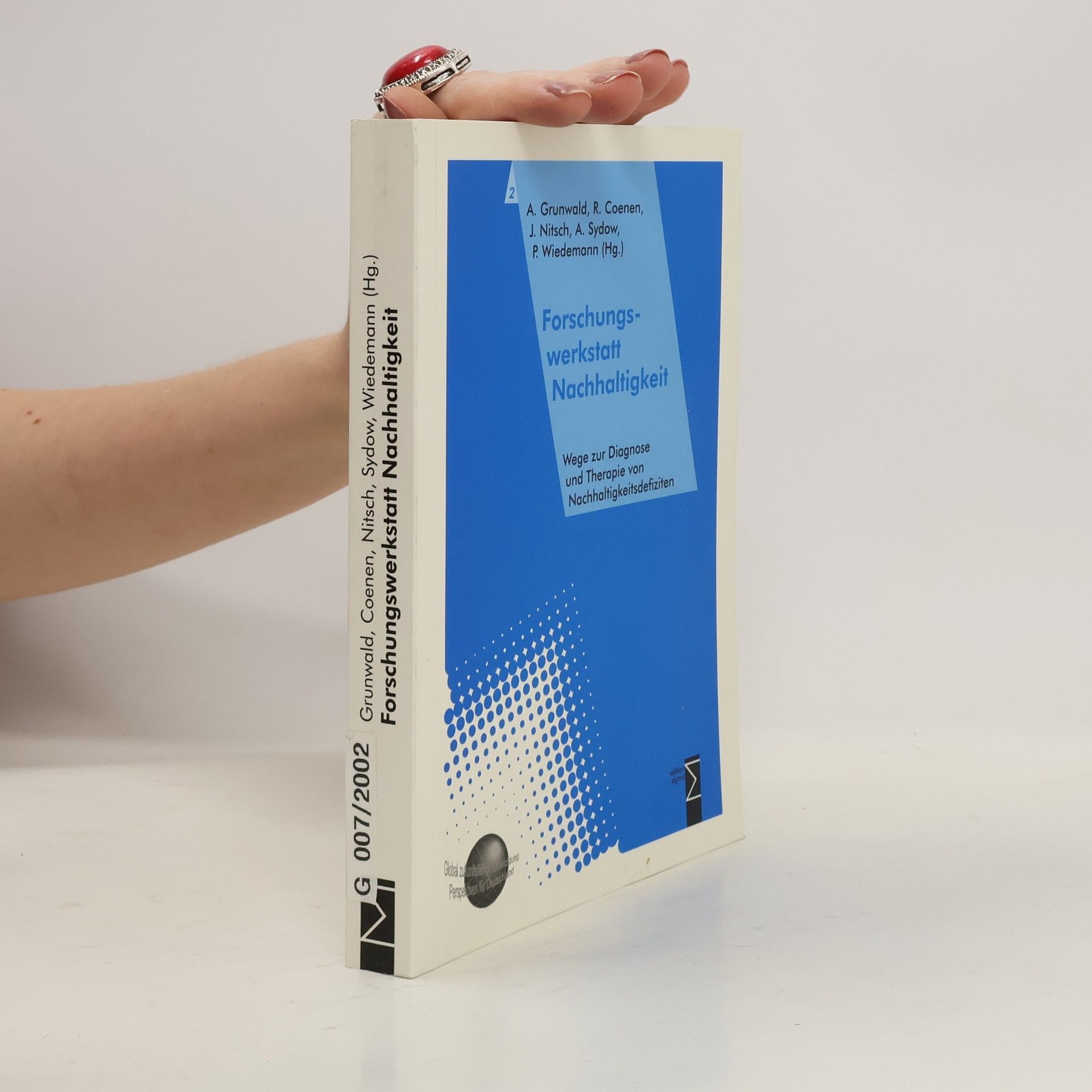Armin Grunwald Book order (chronological)






Nachhaltigkeit
3., aktualisierte und erweiterte Auflage
Nachhaltige Entwicklung ist zu einem verankerten Leitbild in Politik, Wirtschaft, Wissenschaft und Öffentlichkeit geworden, welches die Diskussionen über die künftige Entwicklung der Menschheit bestimmt. Es geht im Kern um die Suche nach einem gerechten Zivilisations- und Wirtschaftsmodell, das der Verantwortung gegenüber allen heute und künftig lebenden Menschen gerecht wird, das mit der Begrenztheit der natürlichen Ressourcen verträglich ist und das gleichzeitig Entwicklungsperspektiven offenhält. Das Buch gibt einen umfassenden und systematischen Überblick über die Hintergründe des Leitbilds "Nachhaltigkeit", über aktuelle Konzepte zu seiner Definition, Messung und Realisierung sowie über politische und gesellschaftliche Strategien auf institutionellen Ebenen
Technikfolgenabschätzung
Einführung
Die 3., vollstandig aktualisierte und erweiterte Auflage des Lehrbuchs zeigt unter anderem, wie Technikfolgenabschatzung (TA) vorausschauend und partizipativ zur verantwortlichen, demokratischen und nachhaltigen Gestaltung des technischen Fortschritts beitragt, welcher Leben, Gesellschaft und Umwelt tiefgreifend und schnell verandert. Digitalisierung, Energiewende und Gentechnik sind einige Beispielfelder. Der Klimawandel und die Abhangigkeit von Ressourcen gehoren genauso hierzu wie soziale Folgen durch Automatisierung und Uberwachung. Das Buch erlautert u.a. die historische Entwicklung der TA und geht auf Theoriebildung und -debatten ein. Praxisbeispiele und TA als Projektforschung vermitteln zudem ein Bild davon, wie TA konkret umgesetzt werden kann.
Living Technology
Philosophy and Ethics at the Crossroads Between Life and Technology
- 344 pages
- 13 hours of reading
Exploring the blurring lines between life and technology, this book offers ethical guidance for responsibly navigating research and innovation. It delves into philosophical reflections on the implications of these shifts, encouraging readers to consider the profound impact of technological advancements on human existence and ethical considerations in modern society.
Wer bist du, Mensch?
Transformationen menschlicher Selbstverständnisse im wissenschaftlich-technischen Fortschritt
"Der zunehmende Einfluss von Wissenschaft und Technik auf praktisch alle Bereiche des menschlichen Lebens und die naturliche Umwelt motiviert die große Frage: Wer bist Du, Mensch, angesichts von Robotik und Kunstlicher Intelligenz, von genetischem Editieren und technischen Unsterblichkeitsphantasien? Wer willst Du sein in einer zusehends hoch technisierten Welt? Wie willst Du Freiheit, Verantwortung und Kreativitat erhalten und ausleben? Was wird aus dir im sich weiter beschleunigenden technischen Fortschritt? Ein interdisziplinares Team geht diese Fragen an, um das Gesprach daruber in die Gesellschaft zu tragen"-- Back cover
Der unterlegene Mensch
Die Zukunft der Menschheit im Angesicht von Algorithmen, künstlicher Intelligenz und Robotern
Alle reden von Digitalisierung. Wunderbare Zukunftsperspektiven werden entworfen. Komfort und Wohlstand, mehr Gesundheit und möglicherweise die digitale Unsterblichkeit warten auf uns. Diese neuen Annehmlichkeiten sind aber nur die eine Seite der Medaille. Zunehmende Abhängigkeit von digitalen Technologien, das Risiko totaler Überwachung, massenweise Übernahme menschlicher Arbeitsplätze durch Roboter, die Manipulation öffentlicher Meinung, der drohende Kontrollverlust des Menschen über die Technik – diese andere Seite zeigt bedrohliche Züge. In diesem Buch entwirft der Physiker, Philosoph sowie Deutschlands führender Technikfolgenabschätzer Armin Grunwald ein kritisches Bild der Welt von morgen und zeigt auf, womit wir zu rechnen haben, wenn wir die Digitalisierung nicht bewusst gestalten und uns selbst komplett ersetzbar machen.
Ende einer Illusion
- 123 pages
- 5 hours of reading
Nachhaltigkeit ist auf der politischen Bühne häufig nur noch ein Lippenbekenntnis. Die Sorge um Ökologie und Umwelt wird zunehmend ins Private verschoben. Nachhaltig konsumieren, so lautet die Botschaft, erzeugt den notwendigen Druck, um Industrie und Handel zu zwingen, umweltfreundliche Produkte herzustellen und anzubieten.Doch was, wenn Mülltrennen oder der Einkauf im Biomarkt nicht ausreichen? Brauchen wir dann wieder mehr Staat? "Nein", meint der Nachhaltigkeitsexperte Armin Grunwald, "wir benötigen mehr zivilgesellschaftliches Engagement". Individuelle Verantwortung und die Pflicht der Bürger, sich als Agenten des Wandels politisch und gesellschaftlich zu engagieren, sind unverzichtbare Bedingungen, ohne die eine glaubwürdige Nachhaltigkeitswende nicht zu haben sein wird. Wie der Weg in eine bessere Zukunft gelingen kann, skizziert Armin Grunwald in seinem Buch.
Nanotechnologie, Raumfahrt, Energietechnik, neue Entwicklungen in der Medizin: Der wissenschaftlich-technische Fortschritt wirft weitreichende Fragen auf, die von der Gesellschaft und der Politik beantwortet werden müssen. Armin Grunwald geht in seinem Buch den philosophischen Dimensionen der Politikberatung zu Fragen der Technik nach. In konzeptionellen Analysen und anhand von konkreten Beispielen zeigt er, daß diese philosophische Dimension über Fragen der Ethik weit hinausreicht. Der Philosophie kommen im Geschäft der gesellschaftlichen Technikgestaltung und der diesbezüglichen Politikberatung vielmehr und vor allem aufklärende, kritische und hermeneutische Funktionen zu, die für eine demokratische Auseinandersetzung über Fragen des technischen Fortschritts unentbehrlich sind.
»Nachhaltigkeit« ist ein weltweit anerkanntes Leitbild in Politik, Wissenschaft, Wirtschaft und Zivilgesellschaft. Es zielt auf eine Umsteuerung auf globaler, nationaler und lokaler Ebene, um die Lebenssituation der heutigen Generation in ökologischer, wirtschaftlicher und sozialer Hinsicht zu verbessern. Gleichzeitig sollen die Lebens- und Entwicklungschancen künftiger Generationen nicht gefährdet werden. Die Autoren geben einen umfassenden Einblick in die Geschichte des Leitbilds der nachhaltigen Entwicklung sowie in Konzepte ihrer Realisierung. Sie stellen die wesentlichen Anwendungsfelder vor, die relevanten gesellschaftlichen Akteure sowie die konkreten politischen Strategien zur Umsetzung nachhaltiger Entwicklung.

